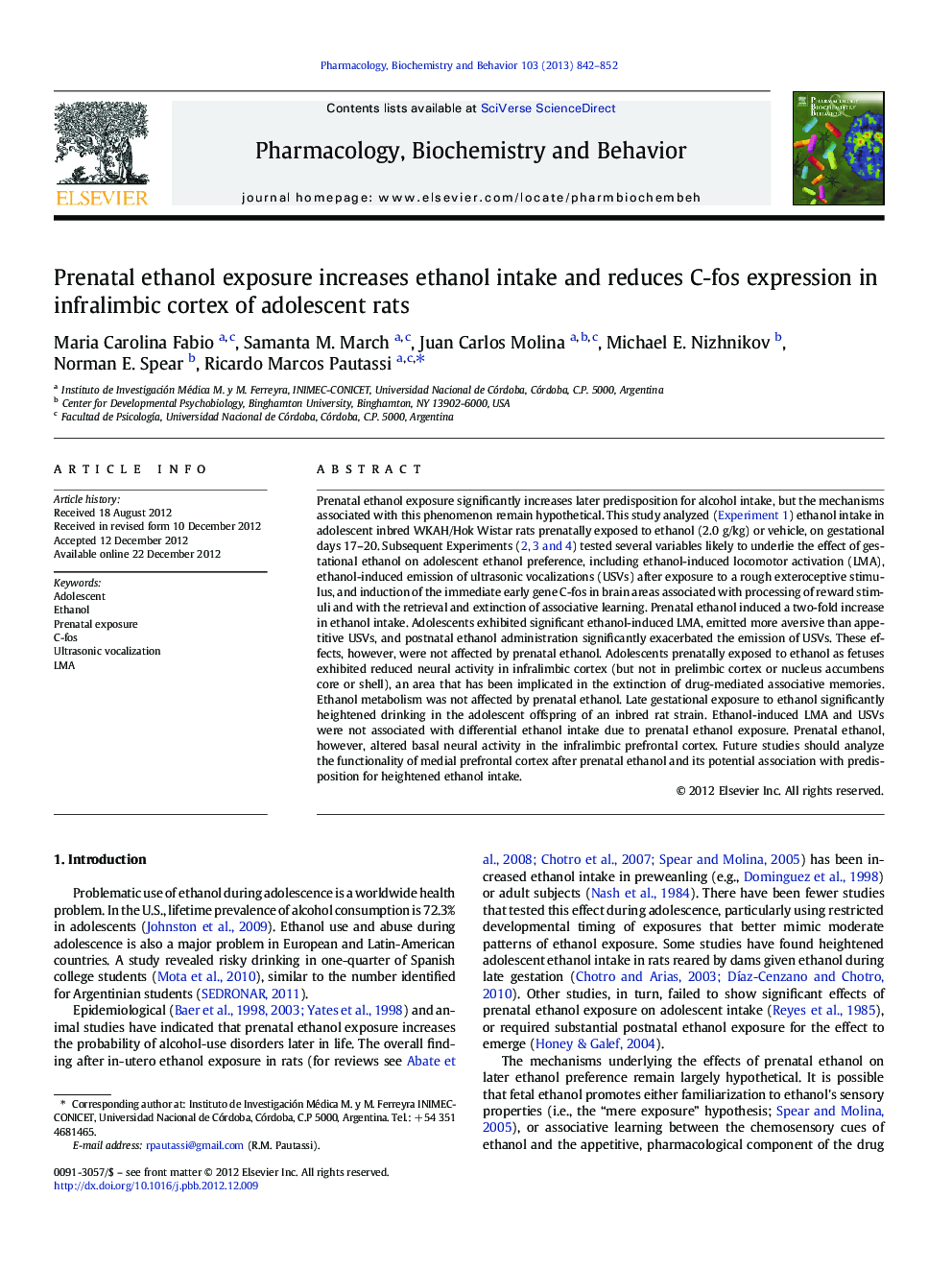| Article ID | Journal | Published Year | Pages | File Type |
|---|---|---|---|---|
| 2013057 | Pharmacology Biochemistry and Behavior | 2013 | 11 Pages |
Prenatal ethanol exposure significantly increases later predisposition for alcohol intake, but the mechanisms associated with this phenomenon remain hypothetical. This study analyzed (Experiment 1) ethanol intake in adolescent inbred WKAH/Hok Wistar rats prenatally exposed to ethanol (2.0 g/kg) or vehicle, on gestational days 17–20. Subsequent Experiments (3.2, 3.3 and 3.4) tested several variables likely to underlie the effect of gestational ethanol on adolescent ethanol preference, including ethanol-induced locomotor activation (LMA), ethanol-induced emission of ultrasonic vocalizations (USVs) after exposure to a rough exteroceptive stimulus, and induction of the immediate early gene C-fos in brain areas associated with processing of reward stimuli and with the retrieval and extinction of associative learning. Prenatal ethanol induced a two-fold increase in ethanol intake. Adolescents exhibited significant ethanol-induced LMA, emitted more aversive than appetitive USVs, and postnatal ethanol administration significantly exacerbated the emission of USVs. These effects, however, were not affected by prenatal ethanol. Adolescents prenatally exposed to ethanol as fetuses exhibited reduced neural activity in infralimbic cortex (but not in prelimbic cortex or nucleus accumbens core or shell), an area that has been implicated in the extinction of drug-mediated associative memories. Ethanol metabolism was not affected by prenatal ethanol. Late gestational exposure to ethanol significantly heightened drinking in the adolescent offspring of an inbred rat strain. Ethanol-induced LMA and USVs were not associated with differential ethanol intake due to prenatal ethanol exposure. Prenatal ethanol, however, altered basal neural activity in the infralimbic prefrontal cortex. Future studies should analyze the functionality of medial prefrontal cortex after prenatal ethanol and its potential association with predisposition for heightened ethanol intake.
► Prenatal ethanol exposure heightened drinking in adolescent inbred rats. ► Postnatal ethanol induced motor stimulation. ► Postnatal ethanol increased emission of ultrasonic vocalizations. ► Unconditioned effects of ethanol were not affected by prenatal ethanol exposure. ► Prenatal ethanol reduced basal neural activity in infralimbic prefrontal cortex.
